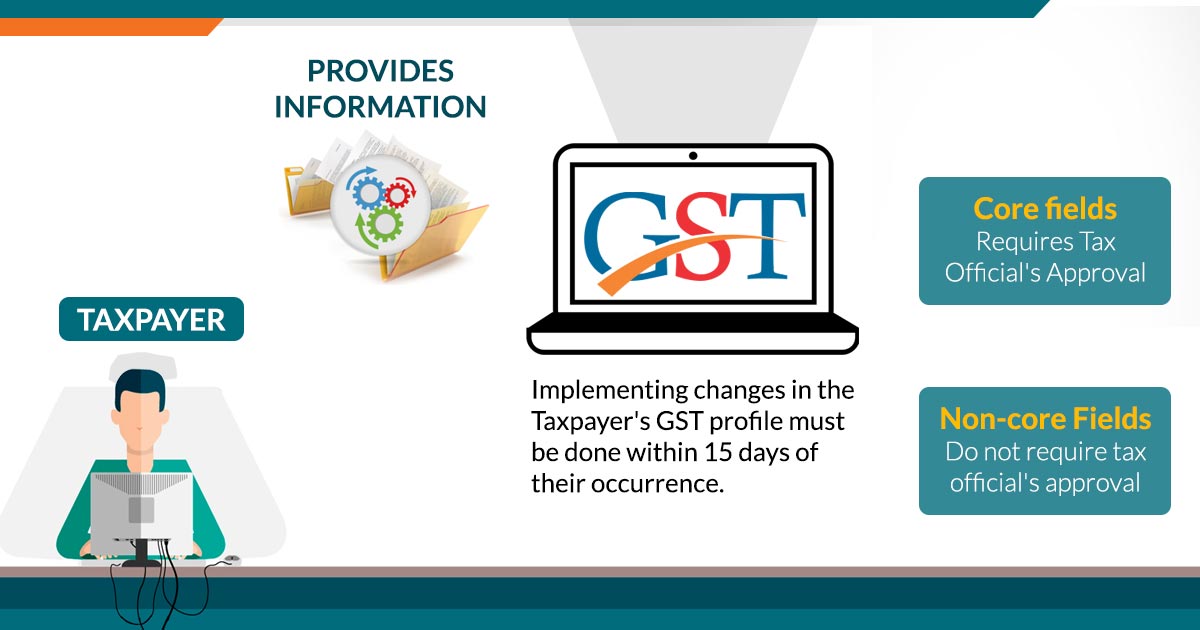How to Navigate Singapore GST Registration for Your Business
How to Navigate Singapore GST Registration for Your Business
Blog Article
The Ultimate Guide to Simplifying the GST Registration Refine and Requirements for Small Company Owners

Comprehending GST Fundamentals
To grasp the principles of the Item and Solutions Tax (GST) system, little business proprietors have to initially understand its underlying principles and implications. Under the GST regimen, businesses are required to register and gather tax obligation on part of the government, guaranteeing transparency and conformity.
One of the essential concepts of GST is input tax credit history, which allows companies to claim debt for taxes paid on their purchases. Recognizing these standard principles is essential for little company owners to navigate the intricacies of the GST system and make certain conformity with the regulation.
Eligibility Requirements for Registration
Having developed a foundational understanding of GST principles, tiny business proprietors must currently meet details qualification criteria to wage the enrollment procedure. In India, entities participated in the supply of goods or solutions with a yearly accumulation turnover surpassing Rs. 40 lakhs (Rs. 10 lakhs for unique group states) are required to register for GST. Additionally, specific companies such as those involved in inter-state supply of goods, casual taxable individuals, and those needed to pay tax obligation under the reverse fee mechanism should register for GST irrespective of their turnover. Companies that were registered under the previous tax regime (BARREL, service tax obligation, etc) are additionally mandated to register under GST. Farming services that just provide generate out of main manufacturing are exempt from GST enrollment. It is critical for local business owner to carefully assess their qualification based upon these standards to make sure conformity with the regulation and stay clear of any type of fines for non-compliance.
Records Needed for GST Registration

Simplified Registration Process Actions
Complying with the collection and confirmation of the requisite records, the enrollment process for GST can be browsed via a collection of simplified steps created to help with effective compliance for tiny service owners. Upon successful verification, an Application Referral Number (ARN) is released, suggesting the conclusion of the GST enrollment process. By adhering to these simplified actions, small business proprietors can successfully sign up for GST and guarantee conformity with tax guidelines.
Tips for Ensuring Compliance
To keep regulative adherence and operational integrity, thorough oversight and aggressive procedures are pivotal in making sure conformity with GST needs for local business owners. Small business proprietors have to remain updated with GST policies, visit this web-site filing target dates, and any kind of adjustments in tax obligation rates to prevent fines and preserve an excellent standing with tax authorities. One important tip for conformity is to maintain exact and comprehensive records of all deals, consisting of expenses, invoices, and billings connected to GST. On a regular basis integrating financial records with GST returns can assist in identifying and rectifying any type of disparities promptly. Additionally, carrying out routine internal audits or seeking expert aid can make certain that business is following all GST guidelines correctly. It is additionally important for tiny business owners to spend in GST-compliant accounting software application that can simplify the tax declaring procedure and reduce mistakes. Participating in GST awareness workshops or training programs can enhance understanding and conformity with GST guidelines, inevitably profiting the organization in the lengthy run.
Final Thought
Finally, local business proprietors should recognize the essentials of GST, fulfill the eligibility standards, gather necessary files, and follow the streamlined registration procedure steps to ensure conformity. By streamlining the GST registration procedure and requirements, local business owners can avoid charges and run their organizations efficiently within the lawful framework - Singapore GST Registration. It is vital for local business owners to remain compliant and enlightened with GST guidelines to keep an effective organization procedure
Tiny service owners looking for GST registration must ensure they gather and submit the required records to complete the registration procedure effectively. The documents needed for GST registration normally consist of evidence of organization enrollment or consolidation, FRYING PAN (Irreversible Account go now Number) card of the business address, identity and entity proof of the promoters/partners/directors, pictures, address proof of the location of organization, financial institution account declarations or terminated cheques, and authorization kinds. Going to GST understanding workshops or training programs can boost understanding and compliance with GST regulations, inevitably profiting the organization in the lengthy run.
By simplifying the GST enrollment process and demands, little organization owners can avoid charges and run their companies efficiently within the lawful framework. It is critical for little organization owners to remain compliant and educated with GST regulations to keep a successful service procedure.
Report this page